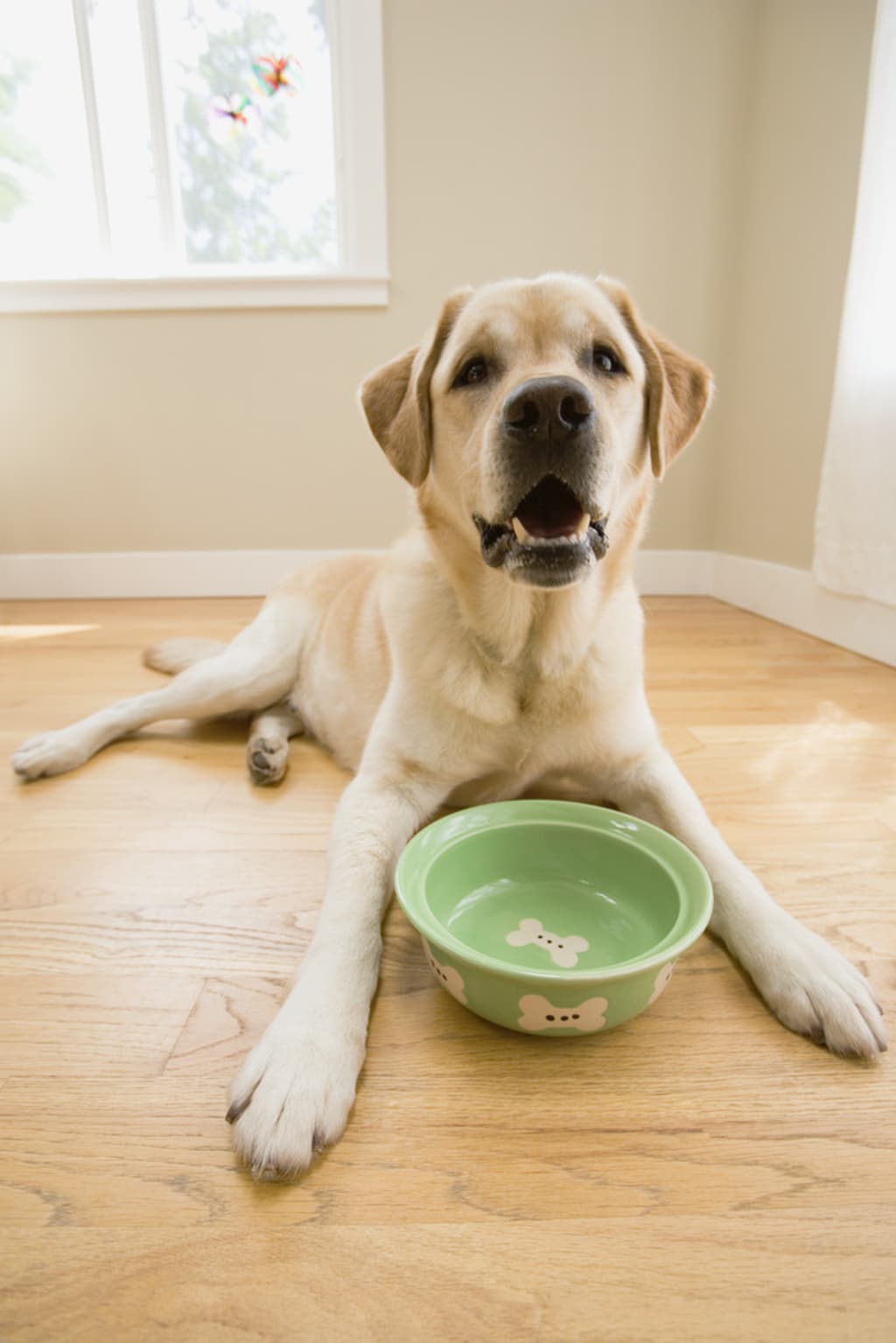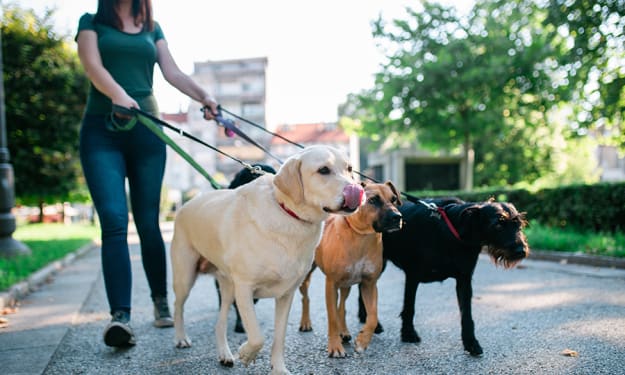Feed Your Dog 'Human Food'
It's healthier than you think.

While tons of people follow the directions on the big bag of dog food they buy at the grocery store and heed all the warnings of "human food"—that may not be the best way to a healthy life for your furry friend.
Marketed Dog Food
So many of the products marketed to us for our dogs are actually unhealthy.
The bag can say "premium" or "natural," but unless it is pure meat or vegetables, chances are those labels are nothing more than good marketing.
Corn is often the first ingredient in dog food, something that has no nutritional value and is used as a filler.
Other ingredients such as wheat gluten, dyes, rendered fat, and Ethoxyquin (chemical preservative) are incredibly unhealthy and should be avoided.
A lot of the animal by-products used are of the "feed-grade" level and can contain harmful bacteria—that is why they are often "cooked" at high temperatures and, in this process, most of the nutrients your dog needs are burned off.
It's easy to grab a bag off the shelf, scoop out a level cup of Kibbles and Bits, and be done with it—but, consider your options before throwing in the towel.
Share the Food You Already Eat
Dogs benefit from eating many of the foods you eat yourself: blueberries, carrots, red cabbage, oranges, pure peanut butter, chicken, fish, etc.
If you don't want to hurt your budget, simply share the food you're having for a meal with your puppy.
It's important to start them young. Older dogs may be set in their ways and not inclined to change—but you can try!
If you're making a salad or stir-fry and have extra veggies, toss some up for the pooch. Red cabbage, cucumbers, peas, sweet potatoes, broccoli, cauliflower, and edamame are all good to use! Cooked or raw, but no additives (salt or heavy butter).
Same goes for most fish, but leave the bones out—I like to crumble up cooked fish to guarantee no bones are present before giving it to my dog.
Cheese is okay to share too but in small amounts. Too much fat or salt can be harmful. Moderation is key.
If you're cooking something and want to share it but are unsure if it's safe, simply look it up. The internet is vast in knowledge about what is toxic and what is safe.
Healthy Snacks/Treats
If your dog is chewing on your shoes, throw him/her a carrot.
An entire bag of carrots is about $2 and they're a healthy alternative to raw hide bones (which can be very harmful to pets). Carrots have Vitamin A, C, and K, fibre, and are low in calories. Not to mention, they're great for keeping your dog's teeth strong and clean!
Bananas are great as snacks too! In the summer, mash them up, mix them with plain yogurt and freeze the mixture in an ice cube tray for a nice, cool treat.
Other fruits such as oranges, blackberries, watermelons, pears, apples, and strawberries are safe and high in nutrients.
However, avoid giving fruits or vegetables with pips/seeds in them to your dog. Some of them contain cyanide and are always a choking hazard.
If you're looking for a quick-fix, a spoon-full of natural peanut butter or pure pumpkin puree are also great snacks in between meals.
Proteins
Dogs love and need protein. If you're willing to toss out the processed wet and dry foods completely, you need to be willing to spend the extra buck (or shop thriftily) to supply all of their meaty-meals.
Turkey is a great way to go if you want the biggest bang for your buck. It's cheaper than chicken and the pieces tend to be meatier. If you're a meal prepper, you can opt to buy and cook a whole turkey to last the week.
Fish, chicken, and eggs are other ways to fulfill the protein needs of your dog. Like I said above, NO bones and, unless you've done your research, always cook the meat thoroughly. Bacteria that could live in meat may be fatal to both dog and human.
Lean beef is also OK, but there are so many other options that would be easier on your dog's stomach.
If you know a hunter—or you are one yourself—and you have venison or rabbit to spare, both of these meats are very healthy for dogs.
Food to Avoid
Chocolate is usually on the top of every dog-owner's list of foods-to-stay-away-from, but did you know that grapes and raisins could kill your dog within a few days of ingestion?
For a small dog only one grape could be fatal!
Grapeseed oil, however, is completely harmless and is actually high in Omega-fatty acids. The reasoning doesn't seem to be clear as to why the flesh of a grape, but not the seeds, are toxic to dogs.
Onions, garlic, tomatoes, and avocados are also unfriendly snacks. All for various reasons, but are, for the most part, not toxic unless copious amounts are consumed.
If your dog eats any of the above contact your vet and watch for vomiting.
It's important to do your research and know which foods are good/bad before converting to a completely human-grade meal plan for your pup—but, it is worth it for you and your best bud!
About the Creator
Emily Adams
I drink coffee and I write things. That is what I do.






Comments
There are no comments for this story
Be the first to respond and start the conversation.